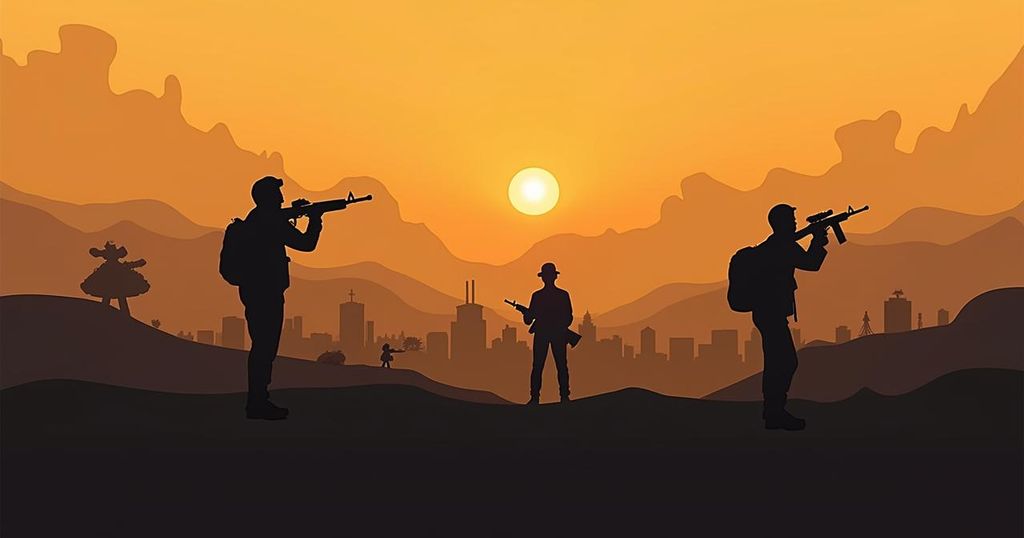Israeli troops have invaded Lebanon to combat Hezbollah following increased hostilities subsequent to the October 7 Hamas attack. Israel’s military actions, justified by security concerns, have led to significant humanitarian repercussions and raised fears of regional escalation involving Iran. As tensions mount, the situation warrants careful scrutiny from international observers.
Israeli forces have commenced their ground invasion into Lebanon, targeting the militant group Hezbollah amidst ongoing hostilities following the Hamas attack on Israel on October 7. The situation has markedly escalated as Israel has executed what they term ‘targeted ground raids’ against Hezbollah in various villages near the border. The backdrop of this conflict includes significant retaliatory actions by both sides, with reported attacks involving improvised explosive devices suspected to have been orchestrated by Israel against Hezbollah communications equipment. The humanitarian crisis in Lebanon has deepened, with over one million individuals displaced, primarily in the southern regions, according to the UN’s Office for the Coordination of Humanitarian Affairs. Concurrently, around 60,000 Israelis have been evacuated from northern towns amid the intensifying violence, which has seen over a thousand fatalities in Lebanon, including numerous women and children. In justifying its invasion, Israel has articulated that its objective is to bolster security along the northern border. The Israeli military has orchestrated assaults into southern Lebanon’s border region, aiming to neutralize Hezbollah’s military infrastructure. Major General Ori Gordin reportedly envisions creating a ‘buffer zone’ that would allow displaced Israelis to return home safely. While Israel claims this incursion is limited and focused, it also retains the potential to expand its operations depending on battlefield developments. The implications of this incursion extend beyond Lebanon, particularly concerning Israel’s fraught relationship with Iran, Hezbollah’s primary ally. Israeli Prime Minister Benjamin Netanyahu has signaled the potential for broader conflict if Iran intervenes. This represents a significant risk; previous provocations have already led to confrontations wherein Iranian forces engaged in strikes against Israeli positions. The prevailing sentiment among Western and regional powers remains one of caution, urging restraint to prevent regional destabilization and further escalation.
The conflict between Israel and Hezbollah has been a persistent issue since Hezbollah’s inception. Established in response to Israeli military operations in Lebanon during the early 1980s, Hezbollah has evolved into a formidable armed group supported heavily by Iran, both financially and militarily. The recent resurgence of hostilities can be traced back to the October 7 attack by Hamas, leading to a subsequent escalation of violence along Israel’s northern border with Lebanon. Israel’s military operations in Lebanon aim to counter Hezbollah’s influence and capabilities threatening Israel’s national security, yet the potential for Iran to become involved raises concerns about broader regional instability.
In conclusion, Israel’s invasion of Lebanon marks a significant escalation in the regional conflict, driven by security concerns in the wake of heightened tensions following the Hamas assault. The military objectives center on neutralizing Hezbollah’s threat along the border, yet the involvement of Iran poses a substantial risk of escalating the violence into a wider regional war. The international community remains apprehensive about the potential consequences, emphasizing the necessity for diplomatic efforts to prevent further deterioration of the situation.
Original Source: www.independent.co.uk






